
Wednesday December 2, 2020
One of President Donald Trump's earliest and most controversial moves was a travel ban on people from certain nations he said were deemed a security threat to the US. Joe Biden has promised this will be one of the first policies he reverses. The ban - which now applies to 13 countries - has survived many legal challenges, but for some families it has meant years of separation. 'My child turned five yesterday. We have been apart his whole life.'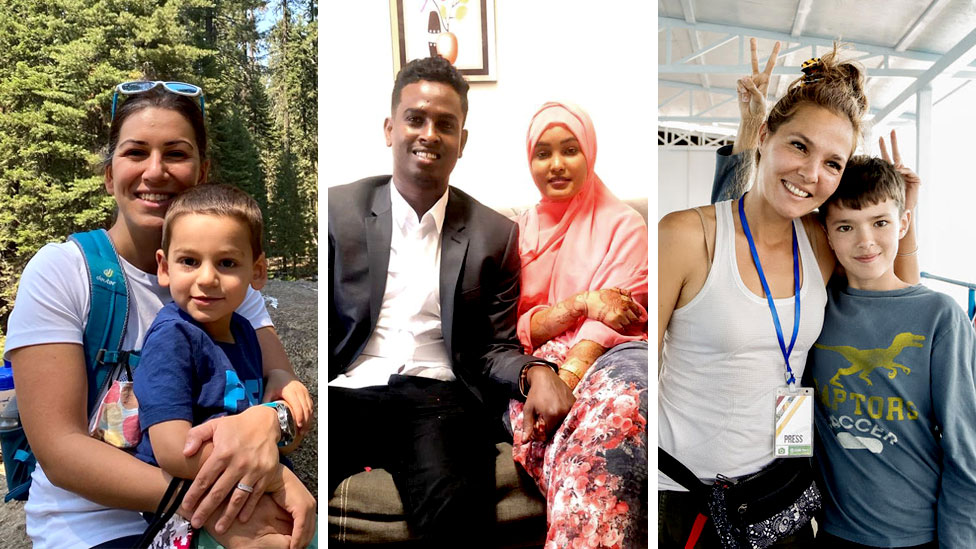
When he first moved to Ohio in 2015, Afkab Hussein planned for his pregnant wife to join him the following year.
But while his wife and children now live in Kenya, they are Somali citizens - and Somalia was one of the countries on the first iteration of the travel ban.
Since he moved, he has only been able to pay a couple of very short visits to his family - and missed the births of his two young children.
"It's been a really tough few years. It's been really hard," he says. "I don't think I'll ever forget the last four years."
Mr Hussein works long, lonely hours, driving lorries in 40 states across the country. He speaks to his wife on the phone, but an eight-hour time difference means that for large stretches of his day, his family is fast asleep.
He has missed all of the major milestones in his sons' lives so far: "Yesterday was my first son's fifth birthday - and I wasn't there."
Mr Hussein knew that during his campaign Mr Biden had promised to lift the ban in his first 100 days, and was hopeful.
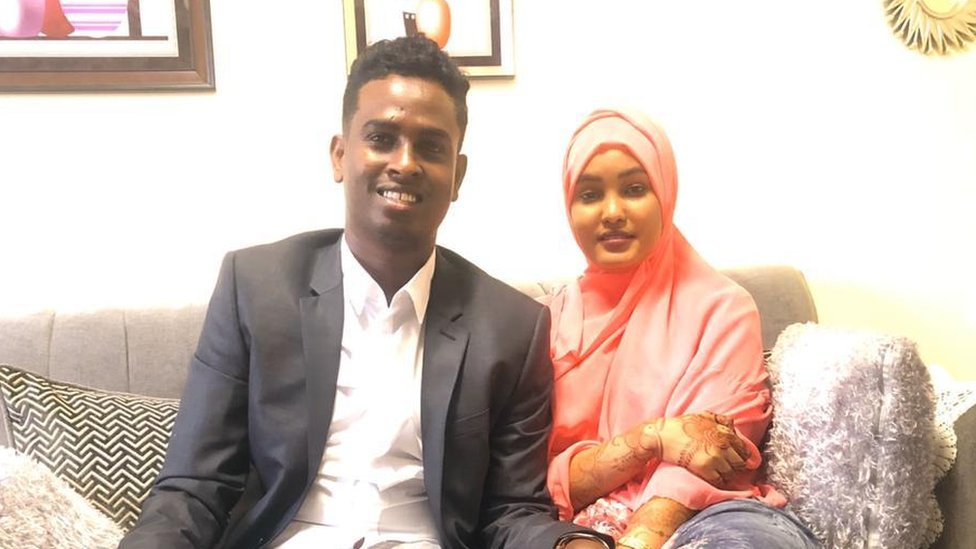
AFKAB HUSSEIN
Ally Bolour, a lawyer with American Visas in California, says he is optimistic these families will be able to meet again, but argues that even before the travel ban young Muslim men like Mr Hussein faced discrimination in the US visa system.
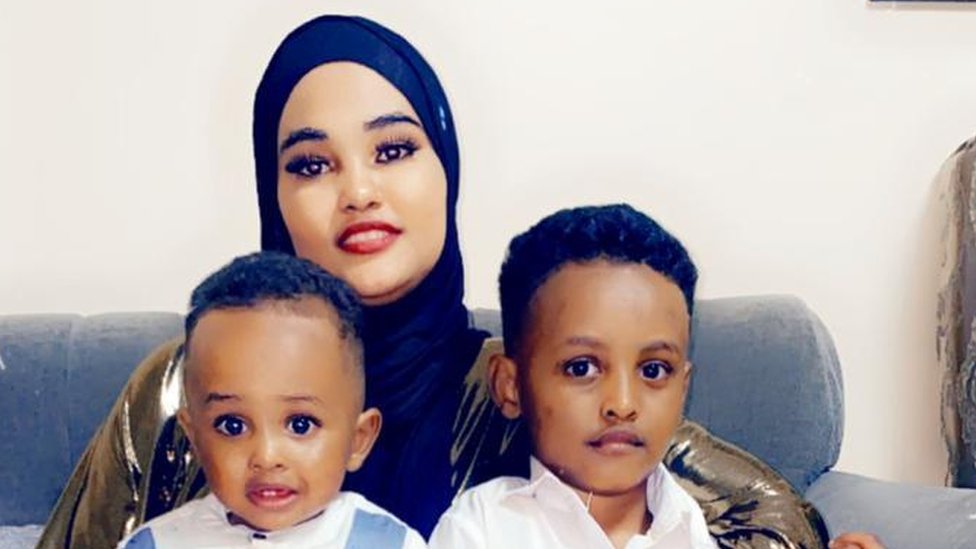
AFKAB HUSSEIN
"Before Trump, even during [the term of former president Barack] Obama," this was an issue, Mr Bolour says.
"Even people who go for consular processing for émigré visas can be subjected to sometimes years-long background checks if they're Muslim, if they're male, between certain ages and from certain countries.
"What Donald Trump did was effectively... what the government was doing already, but in the form of a travel ban."
Some argue that the ban is an effective counter-terrorism measure, but caught up in the visa refusals are also families who just want to be together.
'I would never have had a kid if I had known'
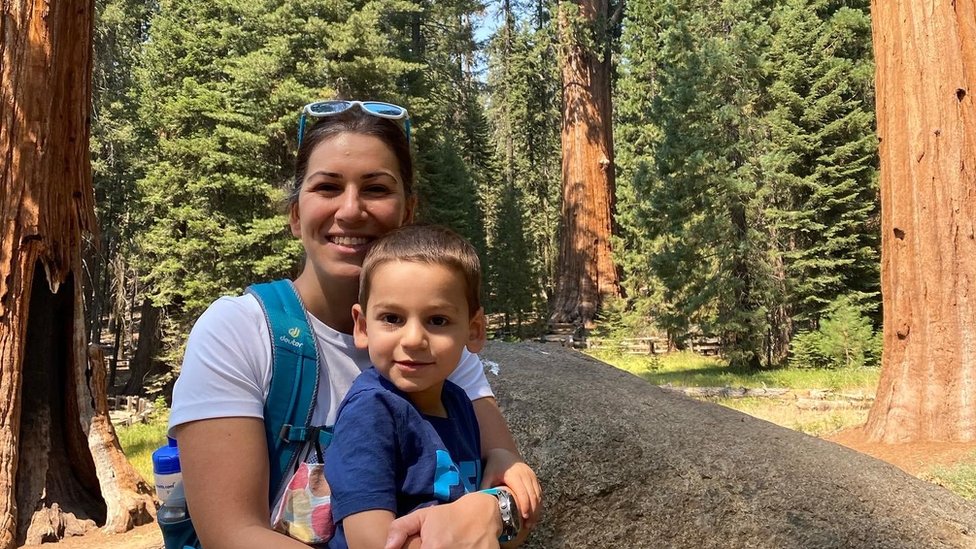
MINA MAHDAVI
Mina Mahdavi from Campbell, California, has a mother in Iran who has never been able to visit her grandson.
Pregnant with her first child in 2016, Mina Mahdavi applied for a tourist visa so her mother could visit from Iran. She really needed her mother's support getting ready for the baby.
One month later Donald Trump took office and in his first week, he signed an executive order imposing a travel ban on citizens of five Muslim-majority countries. One of those countries was Iran.
"For the first couple of minutes [after hearing the news] we were all in denial. We thought: 'This is not going to happen ... I'm legal here, she's applying for a tourist visa.' But then the visa process went on and on and on, and my kid was born... it was rough," she says.
Although the visa application had been submitted just before the ban was announced, it took more than a year to be processed - before it was finally rejected.
Her son is now three-and-a-half and her mother still hasn't been able to visit.
Raising a new baby without the support of her mother left Ms Mahdavi - who had postpartum depression - feeling alone and desperate.
"I'm happy I have him, my son," she adds. "But to be honest, I would never have had a kid if I'd known that my mum wouldn't be here."
She was able to make one short trip to Iran, but the journey from California was long and her infant spent most of the time crying from jet lag. She thought about the difference it would make for her mother to see him in his own home.
Eventually, she just "had to get used to not having that emotional support, not being able to have my parents come and go".
Although the ban applies to all citizens of countries named in the ban, some have been eligible to apply for a waiver. But Ms Mahdavi's mother was rejected without waiver consideration. For her, the whole process was opaque.
Brittney Rezaei, an immigrants' rights attorney with the Council for American-Islamic Relations (Cair), says that applying for waivers for their clients has been really challenging.
"The [government] never put out clear guidance about what would qualify for a waiver... so we were never able to provide guidance to our clients about what the process would be."
Having exhausted all avenues, including calling up the Supreme Court, Ms Mahdavi faced the possibility that the ban would be in place until at least 2025.
"I thought my kid would be eight years old before my mom would be able to come visit us," she says. Now, she is hopeful that her mother can finally hug her grandson.
'My son is totally disconnected from his culture'
Gulnara Niaz, a Kyrgyz photographer in Boston, says she needs her parents to help her son understand his roots.
The central Asian nation of Kyrgyzstan was added to the ban in January this year, a move which left Ms Niaz perplexed but for her it meant that she would not be able to connect her son with her parents.
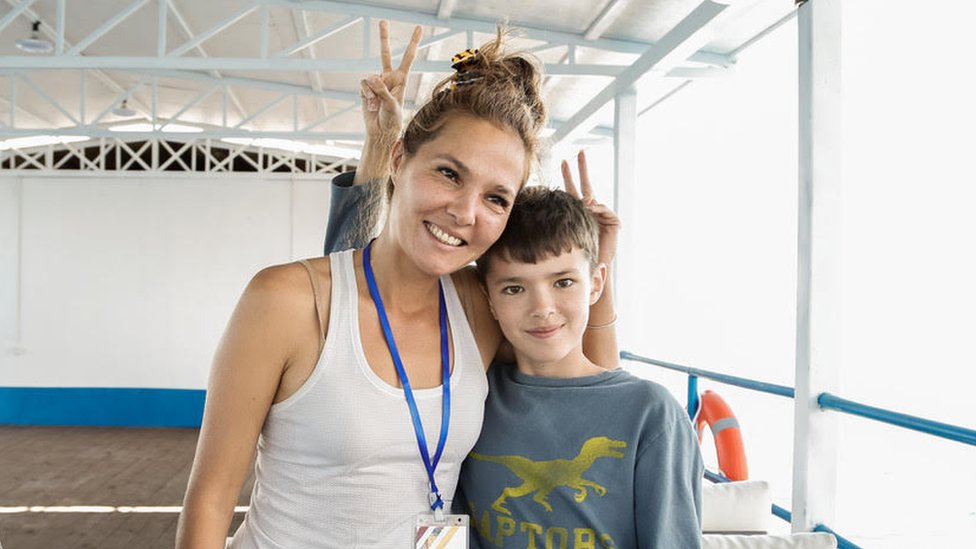
GULNARA NIAZ
"He's totally disconnected from our culture," she says. "Even when he was younger, about 12 or 13, he said to me, 'Mom, you don't understand how hard it is to have a mother who had your upbringing. You're not like every other mother.'"
Ms Niaz grew up in a nomadic community in rural Kyrgyzstan, and tries to keep her traditions alive in Boston - particularly when it comes to food. Her son, she says, is perplexed when he sees her growing her own onions.
"He could learn more about our traditions," she adds. "Maybe he could learn Russian, or even our mother tongue, the Kyrgyz language."
If her parents were allowed to visit for a couple of months, it would help him connect with her identity - she says the travel ban made this a struggle in her life.